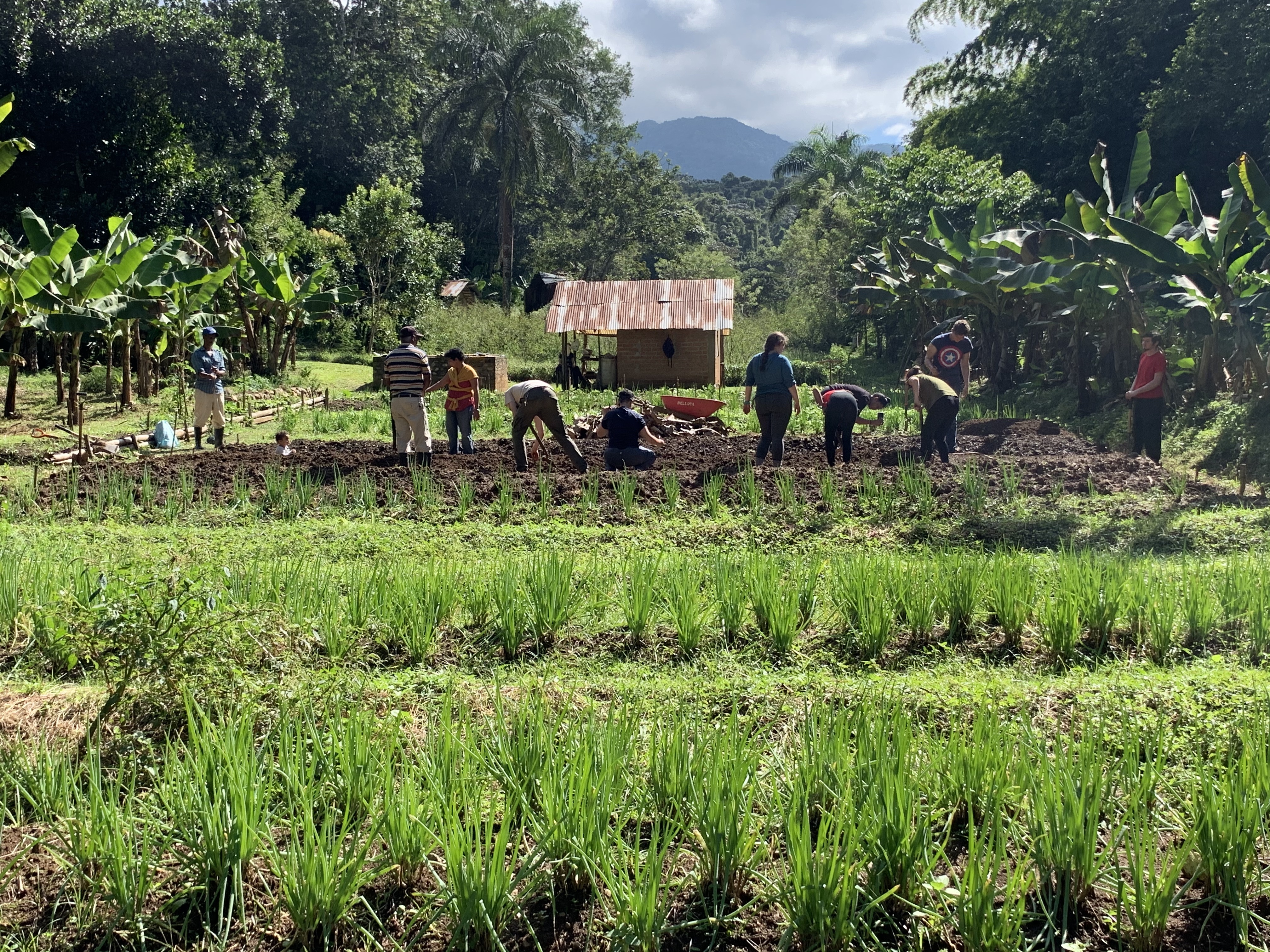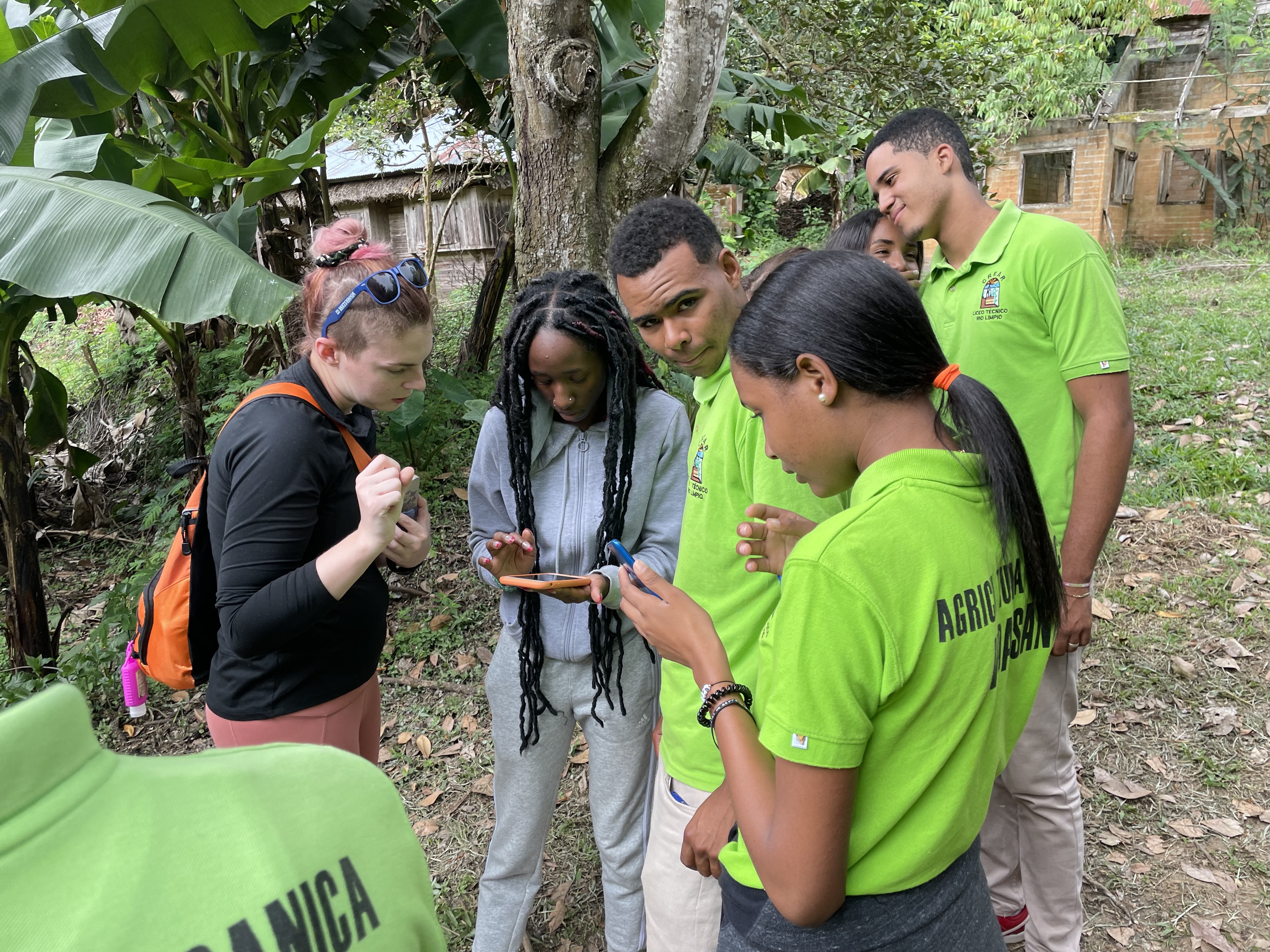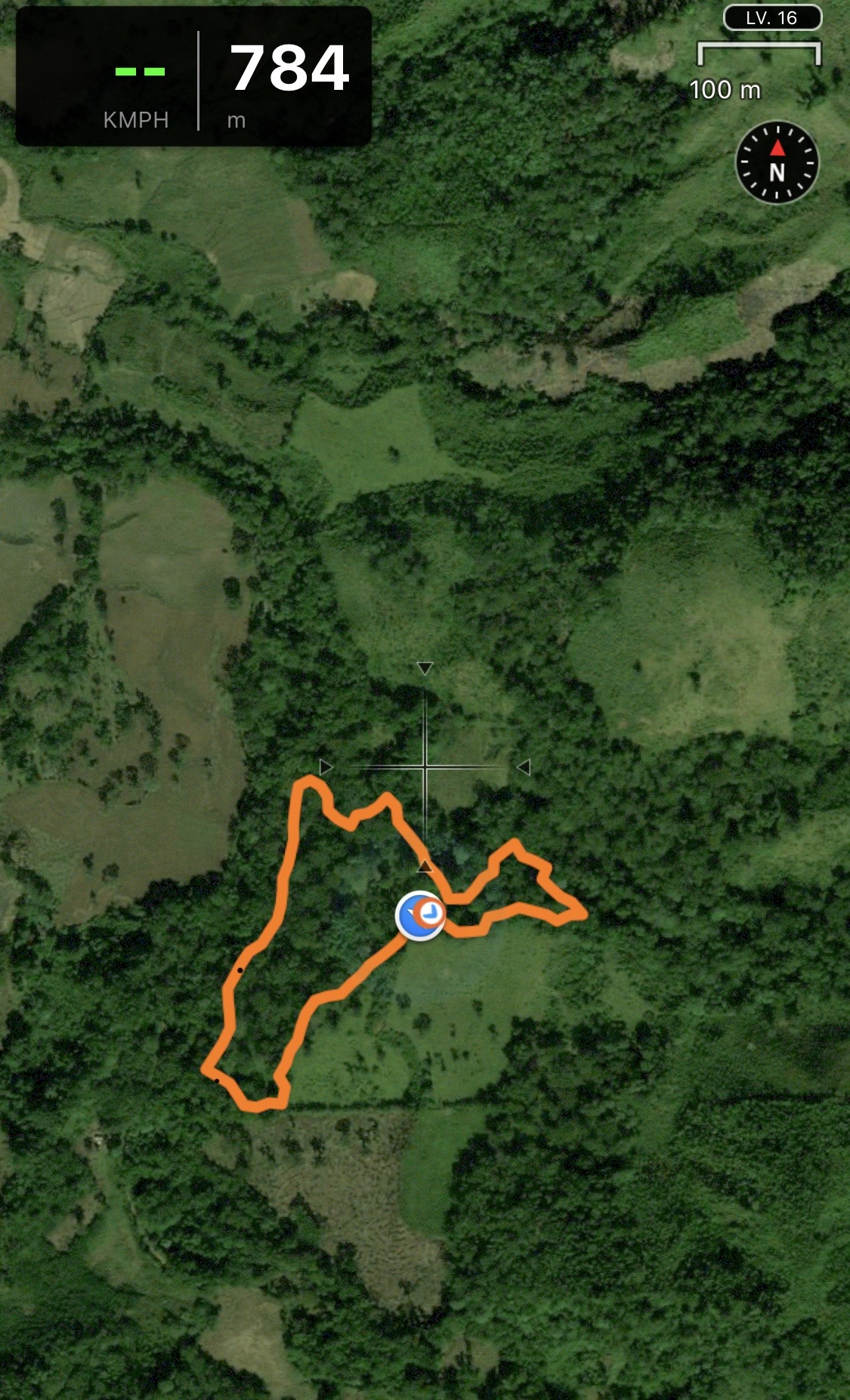
For DePaul student Carys Lovell, the experience of studying abroad in the Dominican
Republic provided a unique perspective focused on service learning, engaging in community-based projects, and learning about another country's history, culture, and
geography.
“I learned from this trip that you can learn so much from being immersed in a culture
different than the one you live…That’s what I would tell students who can apply to this program,”
said Lovell, an alum with BA and MS degrees in community psychology.
The Dominican Republic (DR) Study Abroad Program is one of many opportunities at DePaul for students to engage directly in issues of sustainability and equity through community engagement and service learning. The short-term study abroad program began in 2015 and is set to embark upon its fifth iteration during Winter Quarter and Spring Break 2025. During the trip, student experience centers on a partnership
with high school students at the Centro Regional Estudios de
Alternativas Rural (CREAR) in the mountainous town of Rio Limpio near the DR-Haiti border. The school, which has been in operation since the 1970s, teaches young people how to engage in sustainable and organic agriculture in a region fraught with interrelated environmental, economic, and social challenges. The program has also been integrated with DePaul’s
Global Learning Experience through a collaboration with a local university Pontificia Universidad Católica
Madre y Maestra (PUCMM) in Santiago, Dominican Republic. Before and during travel, PUCMM and DePaul faculty and students engage in discussions related to Dominican-Haitian relations and the building of more sustainable nutrition and food systems on the island which hosts the DR and Haiti.

DePaul and CREAR students practicing mapping in Rio Limpio
The uniqueness of the partnership with CREAR is its integration of a science-based
service-learning project utilizing geospatial technology (GPS and GIS) and the
challenges and opportunities associated with building sustainable food systems within the context of
climate change in the Caribbean. The
Chicago-based phase of the program involves a series of sessions on urban and rural food systems, the history of the Dominican Republic and Haiti, contemporary DR-Haiti relations, and training in community and food systems mapping using GPS applications available on smart phones. Students then travel to the DR where they dive into learning about sustainable food systems through teaching community mapping to CREAR students. In turn, DePaul students learn organic farming techniques within the context of a region facing major threats from deforestation, food insecurity and climate change.
Carys Lovell, CREAR Farm, Rio Limpio
Lovell, who was on the trip in 2022, reflected on learning about the culture
of the Dominican Republic, while enhancing her skills. "The
goal was to use our mapping skills in the Dominican Republic to show CREAR students how to map out
their land and best utilize it. That component of GIS scared me a little bit because I wasn’t
coming in with any kind of experience in mapping or GIS software. That held me back at first,
but professors were encouraging and worked with students who had all levels of experience.”
Lovell added that the experience was “...truly an exchange of knowledge with the people we met
in the Dominican Republic. We weren’t going in as outsiders and showing them that our way is
best. It was more collaborative. We showed them what we learned about mapping, and we
learned from them about farming and their community.”
It was amazing to see
how connected the high school students we met were to their land.
DePaul Students also engaged with local organic coffee growers in Rio Limpio through partnership with the Cooperativa de Productores Orgánicos Valle de Río Limpio, a coffee cooperative that DePaul supports to expand geographic understanding of farms throughout the region. DePaul and CREAR students have engaged in mapping coffee farms to illustrate the role of shade-grown organic coffee production in protecting the tree canopy throughout the region (see below). The latter is critical for learning about agroforestry --the integration of food production and forest management-- through understanding the way forests are not only important places for cash-crops like coffee, but can also produce a variety of food crops that serve the local population.

Coffee Farm and Agroforest near Rio Limpio, Dominican Republic
In addition to learning about and mapping organic coffee production, program participants have explored organic and equitably produced cacao, the main ingredient in chocolate. Students toured a fair trade cacao cooperative made up of 10,000 growers who benefit from both fair trade pricing and cooperative decision making. Additionally, the group learned first-hand about the chocolate production process through touring an organic cacao farm that produces their own chocolate onsite. As Lovell noted, "just being able to go to a
farm and see them take the cacao pods off the tree, turn it into a paste, and then into chocolate.
We really learned where food comes from.”
For Jesse Schaffer, who completed a MA in Sustainable Urban Development in
2023, the experience was critical for learning about how populations utilize local ecosystems to grow food effectively.
“The people we met weren’t just showing us how they do that – we learned how they are
practicing agriculture and mitigating climate change. There’s an idea of progress that is about
getting people out of their communities and moving them to cities. But investing in them where
they are at is worth it!” While at DePaul, Schaffer worked to support a community market garden outside Chicago. His
experience includes managing a farm, advocating for equitable federal policies, and developing
farmer training programs in Illinois and the Midwest.
“To me, the Dominican Republic program is incredible,” he says. “It’s a deep way of getting to
experience another culture. You go to the place and you get this transparent look at how they
work amidst a global and neoliberal economic structure. Rice, beans, mangos, bananas,
coffee, chocolate, ginger, turmeric, garlic, lettuce, onions. There are not that many things they
can’t grow there.”
It’s a deep way of getting to
experience another culture. You go to the place and you get this transparent look at how they
work amidst a global and neoliberal economic structure
According to Schaffer, “It was a pocket of hope. Cooperation and collaboration. It solidified the feeling that
we can do this in Illinois.”
Meanwhile, Connor Scoltock, who participated in the program in 2019 and who returned with another alum to join the group to help out in Rio Limpio in 2022, emphasized the
importance of working with a community rather than for them. “To engage with people in the
Dominican Republic, it was like walking with people on their journey and trying to be in solidarity
with them. It’s very different from ‘the savior complex.’ What the Steans Center is doing in the
Dominican Republic is intentional and reciprocal.”
Scoltock received both a bachelor’s degree in political science and a graduate certificate in sustainable urban food systems at DePaul. He applied his knowledge of GIS to the work he
did in the Dominican Republic.
“My experience in the Dominican Republic has informed a lot of my work in recent years,” he
adds. Following his 2019 trip, Scoltock's work expanded to include organizing farm workers,
teaching gardening education at summer camps, and working on an organic vegetable farm.
“Going to DePaul and studying food systems,” he adds, “we hear and learn a lot of terms and
concepts. But being able to go and see people doing this work--you realize how much is
possible when people work together in their communities."
The DR Study Abroad program will be offered Winter Quarter 2025 with travel during Spring Break. For more information, watch the below video and contact Study Abroad at the below links.